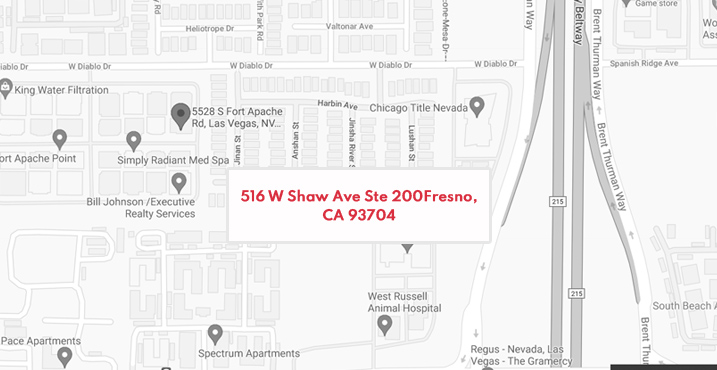Will the California Courts Distribute My Assets If I Die Without a Will?
Whether you consider yourself wealthy or not, dying without a will almost always leave your family at the mercy of the California intestate succession laws. So, as you didn’t leave a will with explicit instructions, the California courts will dictate the distribution of all your assets, including checking accounts, the family home and other real estate, businesses, and any other assets (including your pet’s) you owned.
As you can imagine, this often causes stress, family infighting, and possibly even litigation between family members.
So, legally, if you don’t leave a will (or an estate plan) when you pass on, the court will distribute your property, assets, etc., according to the rules of the California “intestate succession” laws.
All or most of your assets will be left to your closest relatives, as defined by these laws, regardless of your familial relationships or what you may have wanted. Your heirs are your parents, spouse, children, aunts, uncles, nieces, nephews, or other blood relatives. This could occur with almost total disregard for your relationship with these relatives, even if you never really had one!
By properly drafting a will by a Fresno estate planning lawyer, you can avoid the legal chaos that usually occurs when you die “intestate” (without a will) in California. You may feel you’re not “wealthy” enough for a will or estate plan, but that is far from the truth. Even if it’s just the family home, certain checking accounts, vehicles, pets, etc., that’s involved, clearly explaining what you want to be done when you die will provide your family and relatives emotional peace and financial security.
What Are Some Important Facts About California’s Intestate Succession Laws?
The legal information on Intestate succession laws is found in the California legislative information. When you die without a will (or any formal estate plan), these state laws dictate how much of your estate will be received and by whom.
Some vital facts to know about California’s intestate succession laws are:
Your spouse may not automatically inherit all property and assets if you have other living relatives. Your spouse may receive half or less of any community property you own.
Any of your children, who are half-siblings, will inherit as full siblings when dividing any owned property or assets. In many cases, your children will inherit more than half of your assets even if your spouse survives you. If you don’t have a surviving spouse, then your children will commonly inherit everything equally.

During the California probate process, if no surviving heirs, relatives, etc., are found, then many times, your entire estate is “inherited” by the State of California.
Everyone’s family, relatives, and friends differ, but California probate laws stay the same. Essentially that means that if close friends or anyone else were to inherit any type of your owed assets, they might have to sue the state to collect it. All this undue confusion, stress, time, and money can be avoided by having a professional, qualified Fresno estate planning law firm draft even a simple will.
What Property & Assets Are Covered Under California’s Intestate Succession Laws?
Suppose you die suddenly and never “got around” to drafting a will or estate plan. No matter if you are married, divorced, etc., the California intestate succession laws take over and will decide who gets what, how much, and when they get it. You would never have wanted this situation for your family, relatives, and friends.
Even though confusion still ensues, it’s possible that not all your assets are included under the state’s intestate succession laws. In some cases, these California probate courts distribute only specific assets.
Some of your assets that may be excluded from intestate succession and pass immediately to a knows beneficiary is:
- Your life insurance policies name a surviving beneficiary.
- Vehicle titles with duel ownership or a transfer on death beneficiary.
- Real property deeds with a transfer on death beneficiary.
- Living trusts that transfer on death to a surviving beneficiary.
- Retirement accounts with transfer on death beneficiary.
- Bank accounts that you may jointly own, or payable on death to a named family member, and more.

If your spouse (or relative or friend) is a co-owner of these assets, they commonly will automatically receive them without going through probate. To avoid confusion, or financial harm to family members, etc., you should consult with an experienced Fresno estate planning lawyer on the specifics of these exceptions
Will My Spouse Get Anything If I Don’t Have a Will?
Most people in California assume their spouses will inherit everything they have if they die without a will. However, this is not usually the case at all.
If you have any other surviving heirs, no matter how distant, estranged, etc. they usually will receive a portion of your estate. Commonly, your spouse may receive all your community property acquired during your marriage but only a part of any other assets.

The following are a few examples of what your spouse may receive if you have no will:
- If there are no surviving heirs, your spouse may receive your entire estate.
- If you have one child (or grandchild), your spouse may receive half of any separate property.
- If there are two or more children, then your spouse receives one-third of the separate property.
- If you have surviving parents or siblings, your spouse receives half of the separate property, etc.
If you have specific questions, as each case and family differ, the only legally sound way to know a correct answer is to consult an empathetic, knowledgeable local estate planning law firm.
I Need a Will, But Need More Information; What Should I do?
Most Californians feel they must draft a will only in their old age. However, life is unexpected, and accidents, illnesses, and deaths occur to young and middle-aged people every day; this is, unfortunately, a fact of life.
Any assets you have, such as bank accounts, homes, vacation real estate, vehicles, etc., should be passed down how you want so your family and heirs are secure. Accordingly, leaving this decision up to the California laws intestate succession laws is simply a bad idea.
Consult with a Fresno estate planning law team with a history of successful estate planning for myriad California families. The estate planning lawyers at the Bains Law Offices will analyze all your assets and draft a firm, well-thought-out will that works for your specific circumstances.
Call them today at (559) 890-1007 and ensure that your families and relatives’ security, finances, and future are what you want them to be.









